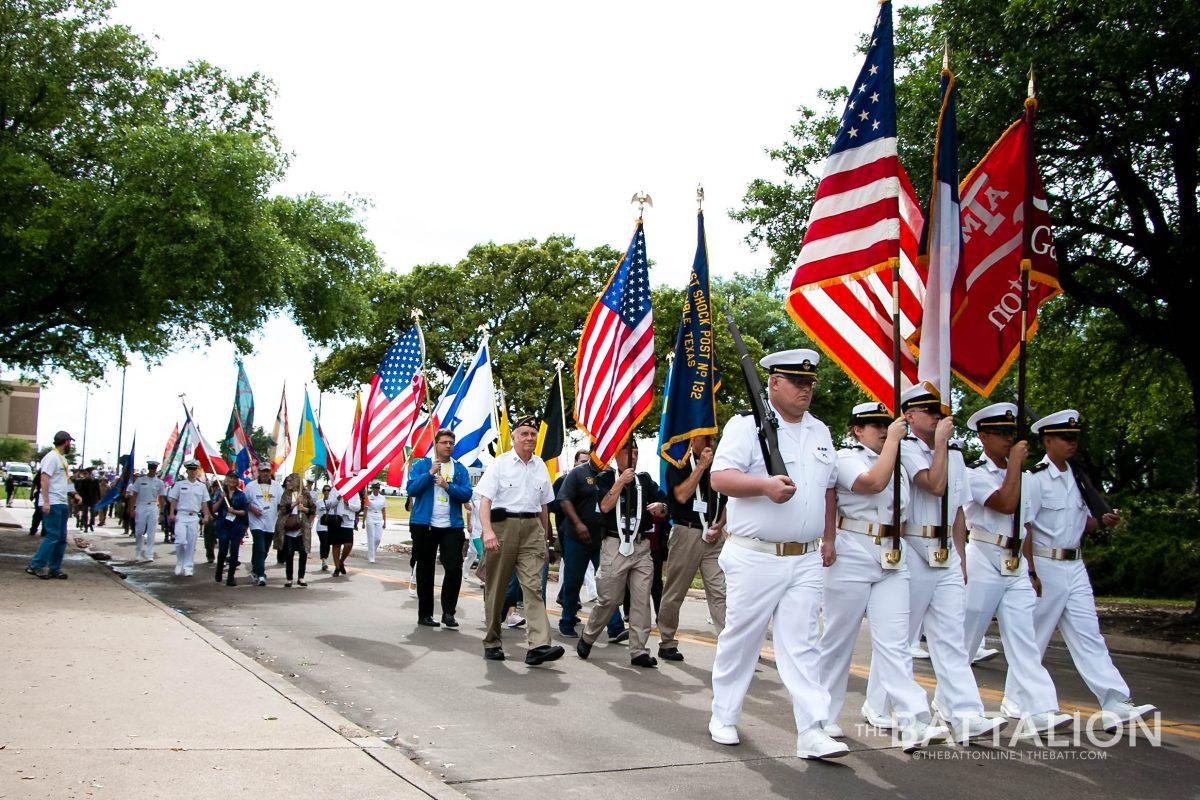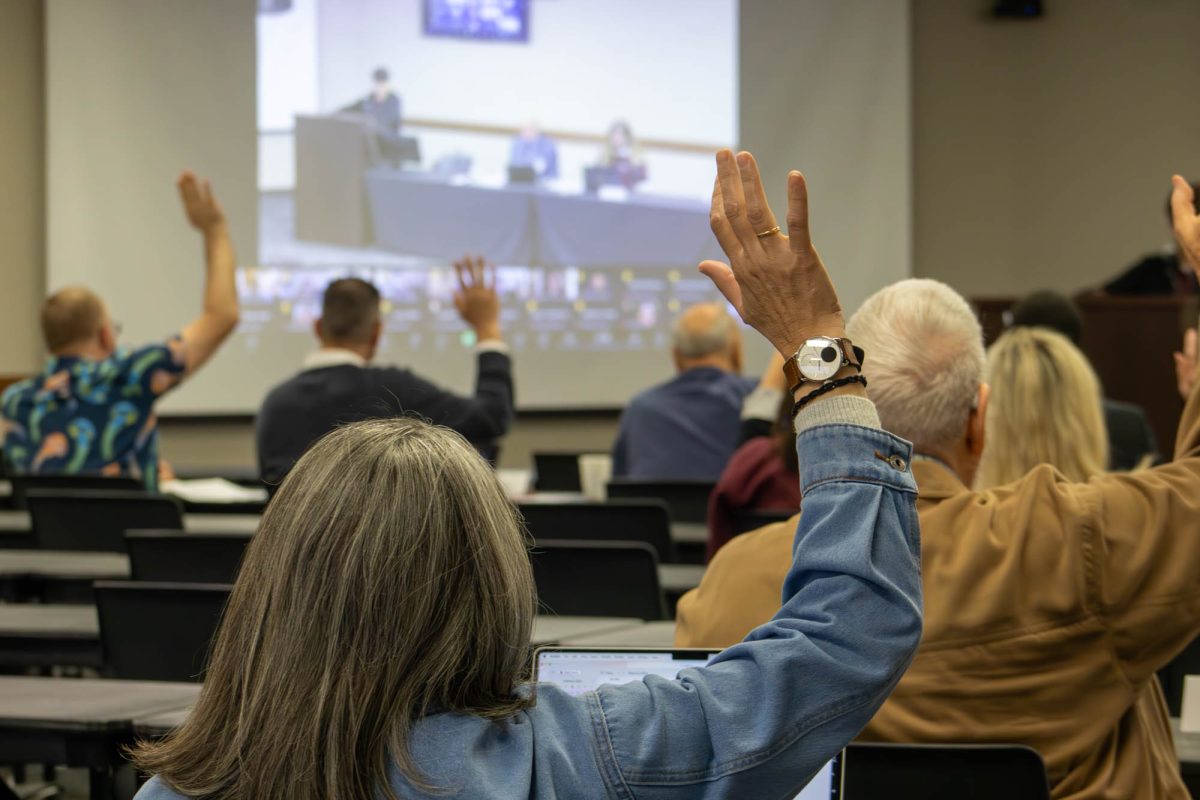Gathered in Reed Arena on Sunday, around 350 people took part in the largest March for Remembrance at Texas A&M to date.
March of Remembrance is an international organization built to remember and honor Holocaust survivors, acknowledge the history of the Holocaust through descendants of perpetrators and bystanders to the event, and taking a stand for community awareness through a two mile walk.
Holocaust survivor Ruth Steinfeld gave her testimony with great detail of her childhood hiding from Nazi forces in occupied France after escaping from a concentration camp by a liberation organization.
Key figures from the university such as Chancellor John Sharp, Student Body President Amy Sharp and former Executive Director of A&M Hillel spoke, as well as leaders from the community such as U.S. Representative Bill Flores (R) and the Mayor of College Station, Karl Mooney.
This is the first time the A&M in College Station hosted the event. The first time the march was hosted through a college was at the A&M-Galveston location directed by David Lawhon, former associate professor and honors director, and descendant of a Holocaust Liberator. Lawhon was at the event to direct the beginning and the end of the speeches inside Reed Arena.
“Stop the hate and don’t be a bystander,” Lawhon said is the overall message of the march. “You can’t stand around and just let this happen… That is the big theme is you can’t be a bystander. We as a people have to stand up against these atrocities before they even happen.”
The Maritime Corps of Cadets from Galveston first marched at the event when it arrived at A&M-Galveston and have marched in them since, including this year.
“We started 2016 [at] A&M and the Corps marched with us,” Lawhon said. “And they have been marching with us ever since.”
Rozalie Jerome, executive director of the March for Remembrance Texas, said it is important to speak up about the rise of anti-semitism, which was mentioned during many speeches. Anti-semitic attacks increased in the U.S. by 57 percent in 2017, according to the Anti-Defamation League.
“We’re remembering the Holocaust survivors and letting their voices be heard and their stories told,” Jerome said. “Especially with the increase of anti-Semitism that’s happening again.”
Chriss Ege, associate national director for March of Remembrance Texas, said this was a combination of many groups, including the student organization sponsor Christians United for Israel, to bring to light the issues this march intends to address.
“We’re little teams of ordinary people with an extraordinary passion,” Ege said. “And we want individuals to be sensitized to the issues of the Holocaust and take it forward in their own communities and their own churches and their own spheres of influence.”
Bill Orlin, a Holocaust survivor born in 1932 and was able to escape Poland and migrate to the U.S. Orlin said he believes that the Holocaust was a part of our history that cannot be forgotten.
“[The March for Remembrance] has a lot of meaning to me because this represents a wide variety of people who want the world to know that the Holocaust happened,” Orlin said. “And we need to remember it and never forget.”









